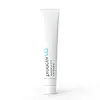What's inside
What's inside
 Key Ingredients
Key Ingredients

 Benefits
Benefits

 Concerns
Concerns

 Ingredients Side-by-side
Ingredients Side-by-side

Water
Skin ConditioningButylene Glycol
HumectantAlcohol
AntimicrobialGlycerin
HumectantBetaine
HumectantPEG/PPG-17/6 Copolymer
SolventGlyceryl Polymethacrylate
Ophiopogon Japonicus Root Extract
Skin ConditioningPhenoxyethanol
PreservativeBis-PEG-18 Methyl Ether Dimethyl Silane
EmollientPEG-60 Hydrogenated Castor Oil
EmulsifyingCarbomer
Emulsion StabilisingTromethamine
BufferingGlycyrrhiza Uralensis Root Extract
Skin ConditioningParfum
MaskingHoney
HumectantJuglans Regia Seed Extract
Skin ConditioningTheobroma Cacao Extract
Skin ConditioningDextrin
AbsorbentLilium Candidum Bulb Extract
Skin ConditioningPaeonia Albiflora Root Extract
Skin ConditioningRehmannia Glutinosa Root Extract
Skin ConditioningPolygonatum Officinale Rhizome/Root Extract
Skin ConditioningNelumbo Nucifera Flower Extract
Skin ConditioningXanthan Gum
EmulsifyingEthylhexylglycerin
Skin ConditioningPortulaca Oleracea Extract
Skin ConditioningLimonene
PerfumingCamellia Sinensis Leaf Extract
AntimicrobialDisodium EDTA
Phenyl Trimethicone
Skin ConditioningChondrus Crispus
MaskingLinalool
PerfumingBiosaccharide Gum-1
HumectantZiziphus Jujuba Fruit Extract
Skin ConditioningNatto Gum
Citronellol
PerfumingCitral
PerfumingPropylene Glycol
HumectantGeraniol
PerfumingChlorphenesin
AntimicrobialHydrogenated Lecithin
EmulsifyingBHT
AntioxidantSodium Dehydroacetate
PreservativePotassium Sorbate
PreservativeCitric Acid
BufferingSorbic Acid
PreservativeTocopherol
AntioxidantWater, Butylene Glycol, Alcohol, Glycerin, Betaine, PEG/PPG-17/6 Copolymer, Glyceryl Polymethacrylate, Ophiopogon Japonicus Root Extract, Phenoxyethanol, Bis-PEG-18 Methyl Ether Dimethyl Silane, PEG-60 Hydrogenated Castor Oil, Carbomer, Tromethamine, Glycyrrhiza Uralensis Root Extract, Parfum, Honey, Juglans Regia Seed Extract, Theobroma Cacao Extract, Dextrin, Lilium Candidum Bulb Extract, Paeonia Albiflora Root Extract, Rehmannia Glutinosa Root Extract, Polygonatum Officinale Rhizome/Root Extract, Nelumbo Nucifera Flower Extract, Xanthan Gum, Ethylhexylglycerin, Portulaca Oleracea Extract, Limonene, Camellia Sinensis Leaf Extract, Disodium EDTA, Phenyl Trimethicone, Chondrus Crispus, Linalool, Biosaccharide Gum-1, Ziziphus Jujuba Fruit Extract, Natto Gum, Citronellol, Citral, Propylene Glycol, Geraniol, Chlorphenesin, Hydrogenated Lecithin, BHT, Sodium Dehydroacetate, Potassium Sorbate, Citric Acid, Sorbic Acid, Tocopherol
 Reviews
Reviews

Ingredients Explained
These ingredients are found in both products.
Ingredients higher up in an ingredient list are typically present in a larger amount.
Carbomer is a polymer of acrylic acid. Its main role is to create a gel consistency.
A high amount of carbomer can cause pilling or balling up of products. Don't worry, most products contain 1% or less of carbomer.
Disodium EDTA plays a role in making products more stable by aiding other preservatives.
It is a chelating agent, meaning it neutralizes metal ions that may be found in a product.
Disodium EDTA is a salt of edetic acid and is found to be safe in cosmetic ingredients.
Learn more about Disodium EDTAPropylene Glycol is an odorless, colorless liquid. As a humectant, it helps skin retain moisture. It also aids in delivering active ingredients.
Another role of this ingredient is preventing a product from melting or freezing. Propylene glycol also adds antimicrobrial properties to a product, elongating product lifespan.
This ingredient is considered an organic alcohol and commonly added into both cosmetics and foods.
Those with sensitive skin or conditions may develop a rash when using this ingredient.
Learn more about Propylene Glycol